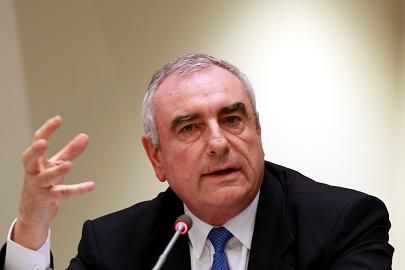BT, EDF, Coca Cola call for urgent revision to EU emissions scheme
Business leaders in Europe are calling for a review of the EU Emissions Trading Scheme (EU-ETS) and for it to include a Market Stability Reserve by 2017

Business leaders in Europe are calling for a review of the EU Emissions Trading Scheme (EU-ETS) and for it to include a Market Stability Reserve by 2017.
The move would ensure the low-carbon economy and energy system remains on track, according to The Prince of Wales’ Corporate Leaders Group (CLG) whose members include BT, EDF Energy, Coca Cola, GlaxoSmithKline, Shell and Unilever.
The EU-ETS covers more than 11,000 power stations, factories and other sites.
It uses a cap-and-trade system, where the overall amount of greenhouse gas (GHG) emissions that can be emitted by the companies involved is set and allowances can then be traded.
A Market Stability Reserve would reduce the amount of emissions allowance units that the EU is permitted to auction on the global market.
In a letter to Members of the European Parliament (MEPs) the CLG, which supports business friendly policy on climate change, said introducing a Market Stability Reserve as sooner rather than later “will give the necessary signals to investors and industry to effectively transition to a low carbon economy and energy system [and] mitigate any downward pressure on the price of carbon from structural economic changes or other energy policies”.
Members of the CLG said that the 900 million emission allowance units that have been set aside and will return to auction in 2019-2020 should be included in the Reserve from the outset.
The letter says that taking this action now would help to restore balance to the market and promote decarbonisation measures.
The letter added: “We are convinced that the [proposed] reforms will provide the basis for meeting Europe’s 2030 commitment of at least 40 peer cent greenhouse gas emissions reductions and will put is on the road towards our 2050 goals of 80-95 per cent greenhouse gas emissions reductions.”
Philippe Joubert (pictured), chair of the CLG, said: “The EU-ETS is the cornerstone of EU climate policy, so we have to get this right – it must be reformed to driver forwards green growth sooner rather than later. Establishing a Market Stability Reserve by 2017, with the 900 million back-loaded emissions allowance included in the Reserve from the outset, will help rebalance the emissions trading market, enable a more robust carbon price, and stimulate the transition to a low carbon economy.”
The EU-ETS is currently the largest emissions trading scheme in the world - the second largest opened in South Korea this week.
When China’s scheme becomes fully operational in 2020, however, it will become the largest in the world.




